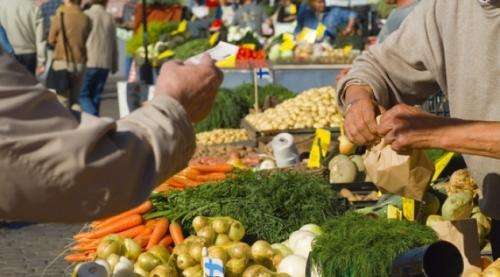'Locally produced food' means different things to different people

Eating and producing locally grown food is often presented as a crucial step towards making our consumption more sustainable. A new thesis by Sofie Joosse, researcher in social and economic geography at Uppsala University, shows that there are a number of different interpretations of what locally produced food really is. She also shows what an important role intermediaries such as food bag services have in promoting locally produced food.
Before we make a claim about the potential of local food we first need to better understand what local food actually is. In her new thesis, Sofie Joosse unravels the essence of local food and investigates how, when, why and by whom food products become categorised as local.
Through mapping where people get their local food and discussing people's fridges and consumption practices, she concludes that local food entails a variety of understandings, assumptions and practices. Consumers tend to discuss local food in a similar way, but have nevertheless fundamentally different local-food practices that can range from home-growing to food bag services and participation in collective buying groups to locally-sourced high-end dinners.
'I found that local food is an open concept that attracts many people, with often quite different food practices. What people consider as local food depends much on the logistics of their everyday life and ideas of people in their social circles, such as family members and friends', says Sofie Joosse.
Most research on local food focuses on the direct interplay between farmers and consumers. In contrast, this thesis shows that so-called 'curators' continue to play an important role in the social production of local food. Curators include farmers' markets, but also food bag services, food blogs and apps. These curators interpret, translate and shape the marketplace by sorting, evaluating and ascribing value(s) to specific food products and providing general or personalised recommendations to consumers. Sofie demonstrates that the power of curators should not be underestimated. For instance, the food bag service exerts a considerable impact on the food-related practices of its subscribers, because it greatly affects consumption habits.
'While traditionally alternative food networks are interested in doing away with intermediaries, the group of intermediaries I have investigated are highly important in the construction of local food and can really influence consumer food choice a lot. Local-food researchers and planners should do good to direct more attention to the role of curators', says Sofia Joosse.
More information: Full thesis (pdf): "Is it local? A study about the social production of local and regional foods and goods." uu.diva-portal.org/smash/get/d … 58621/FULLTEXT01.pdf
Provided by Uppsala University


















